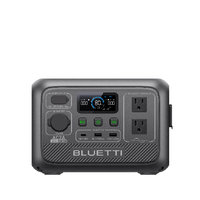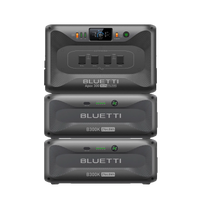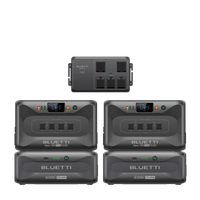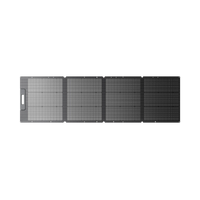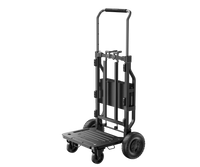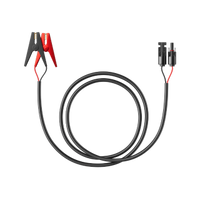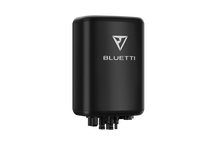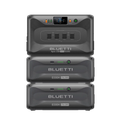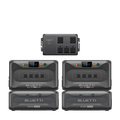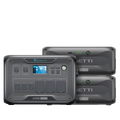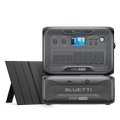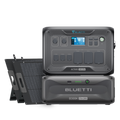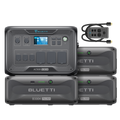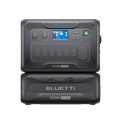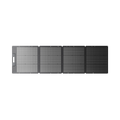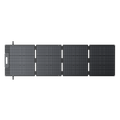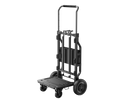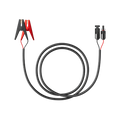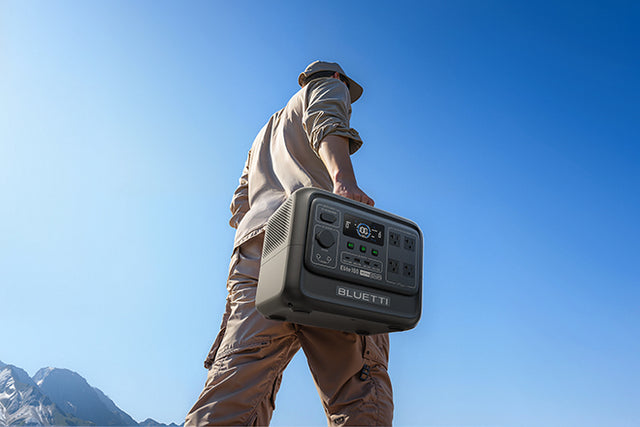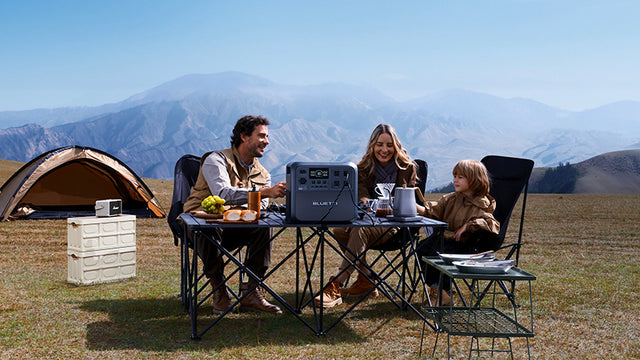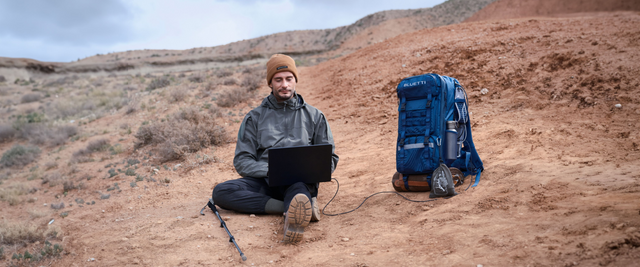Your cart is empty
Shop our productsSolar energy is becoming increasingly popular as a clean and renewable source of electricity for homes and businesses. With the rise in demand, many people are considering do-it-yourself (DIY) solar panel installations as a cost-effective option. But is it really worth taking on this project yourself? In this article, we will explore the pros and cons of DIY solar panels and discuss whether it's a viable option for those looking to switch to solar energy. Whether you're a DIY enthusiast or simply looking to lower your energy bills, read on to find out if DIY solar panels are the right choice for you.
DIY Solar Panel Costs
Installing solar panels can be a great way to reduce your carbon footprint and save on electricity costs in the long run. However, one of the main factors that can influence the decision to go solar is the initial cost of installation. While hiring a professional solar panel installer can be expensive, many people opt for the DIY approach to save on costs. But how much does it actually cost to install solar panels yourself? Let's take a look at the pros and cons of DIY solar panel costs.Pros: One of the main advantages of installing solar panels yourself is the significant cost savings. By choosing to install the panels yourself, you can avoid labor costs and only have to pay for the materials. This can save you thousands of dollars compared to hiring a professional installer. Additionally, you have the flexibility to choose the type of panels and components that fit within your budget, making it a more affordable option.
Another advantage is that you have more control over the design and placement of your solar panel system. This can be beneficial for those who want to customize their system based on their energy needs and available space. By doing it yourself, you can also learn the ins and outs of solar panel installation, which can come in handy if you need to make any repairs or additions in the future.
Cons: DIY solar panel installation requires a significant amount of time and effort. You will need to research and educate yourself on the process, acquire the necessary permits and equipment, and spend time installing the panels. This can be a daunting task for those who are not familiar with electrical work or construction.
Another disadvantage is that you may not be eligible for certain incentives and rebates that are available to professionally installed solar panel systems. This could mean missing out on potential savings and benefits in the long run. Additionally, if the installation is not done correctly, it could lead to additional costs for repairs and maintenance in the future.
It is also essential to consider the quality of the solar panels and other components that you choose to install. While DIY kits may come at a lower price, they may not be as efficient or durable as professionally installed systems. This could result in a shorter lifespan and potentially more frequent replacements, which could end up costing more in the long run.
In summary,
While DIY solar panel installation may seem like a cost-effective option, it is vital to consider the time, effort, and potential risks involved. While it can save you money upfront, it may not be worth the extra work and uncertainties in the long run. Additionally, it is crucial to weigh the savings against potential incentives and rebates that you may be eligible for with a professionally installed system. Ultimately, the decision to install solar panels yourself should be carefully considered to determine if it is worth the cost and effort.How to Find the Best Solar Panels
Research and Compare BrandsWhen it comes to finding the best solar panels for your DIY project, the first step is to research and compare different brands. There are numerous solar panel manufacturers in the market, each offering a variety of products with different features and specifications. It is important to carefully consider the efficiency, durability, and warranty of each brand before making a decision.
Read Reviews and Ratings
Another helpful way to find the best solar panels is to read reviews and ratings from other DIY enthusiasts and solar panel users. These reviews can provide valuable insights into the performance and reliability of the products, helping you make an informed decision. You can also check for certifications and awards received by the brand, as they serve as a testament to the quality of their products.
Determine Your Energy Needs
Before purchasing solar panels, it is necessary to determine your energy needs. This will depend on factors such as the size of your home and your daily energy consumption. Understanding your energy needs will help you select the right size and type of solar panels for your DIY project. You can also consult a professional to get an accurate estimate of your energy requirements.
Consider the Cost
Cost is a crucial factor to consider when searching for the best solar panels. While DIY solar panels may seem affordable, it is important to weigh the upfront cost against the long-term savings. Cheaper panels may have lower efficiency and durability, which can result in higher maintenance and replacement costs in the future. It is advisable to invest in high-quality panels from reputable brands, even if they may be more expensive.
Look for Warranties and After-Sales Support
Warranties and after-sales support are important considerations when purchasing solar panels. Reputable brands often provide warranties for their products, which can range from 10 to 25 years. This ensures that you have some form of protection in case of any issues with the panels. Additionally, check if the brand offers after-sales support, such as technical assistance and maintenance services.
Consider the Type of Solar Panels
There are two main types of solar panels available in the market – monocrystalline and polycrystalline. Monocrystalline panels are made from a single silicon crystal and are known for their high efficiency and sleek design. Polycrystalline panels are made from multiple silicon fragments and are a more affordable option. Consider the advantages and disadvantages of each type and choose one that best suits your needs and budget.
Don’t Forget About Installation
While DIY solar panels may seem like a simple project, proper installation is crucial for their efficiency and safety. If you are not confident in your DIY skills, it is best to hire a professional to install the panels for you. They have the necessary expertise and equipment to ensure that the panels are installed correctly and safely.
finding the best solar panels for your DIY project requires careful consideration of various factors such as brand reputation, efficiency, cost, and type of panels. It is important to do thorough research, read reviews, and consult a professional before making a decision. By following these tips, you can ensure that your DIY solar panels are of high quality and will provide long-term savings and benefits.

Getting the Needed Paperwork
The idea of installing your own solar panels may seem appealing, especially with the potential cost savings and renewable energy benefits. However, before jumping into a DIY solar panel project, it is important to understand the necessary documentation and paperwork that comes with it. The process of installing solar panels involves a series of approvals and permits, and failure to obtain the proper paperwork can result in significant consequences. In this paragraph, we will discuss the pros and cons of tackling the paperwork on your own when considering a DIY solar panel installation.Pros: One of the main advantages of taking on the paperwork yourself is that it can potentially save you money. Hiring a professional to handle the paperwork can add to the overall cost of the project. By taking on the task yourself, you can avoid these additional expenses. Additionally, completing the paperwork on your own can give you a better understanding of the process and requirements involved in installing solar panels. This knowledge can be valuable in the long term, especially if you plan to expand your solar system or make modifications in the future.
Cons: The paperwork involved in a DIY solar panel installation can be complex and time-consuming. It requires a thorough understanding of state and local regulations, as well as building codes and electrical permits. Without proper knowledge and experience, it is easy to make mistakes that can lead to delays and additional costs. Furthermore, the process of obtaining permits and approvals can vary depending on your location, making it even more challenging to navigate on your own. The risk of making errors or facing delays may outweigh the potential cost savings of handling the paperwork yourself.
Alternative Option: For those who are hesitant to take on the paperwork themselves, there is an alternative option. Some solar installation companies offer a DIY package where they guide you through the process of obtaining the necessary permits and approvals. This option combines the cost savings of a DIY project with the expertise and support of a professional installation company. They can help you navigate the complex paperwork and ensure that everything is done correctly and in a timely manner.
while taking on the paperwork for a DIY solar panel installation may seem like a cost-effective option, it is important to carefully consider the pros and cons before making a decision. It requires a significant amount of time, effort, and knowledge to successfully complete the necessary paperwork. For some, the potential cost savings may be worth the extra work, while others may prefer to leave it in the hands of professionals. Ultimately, it is up to individual preference and circumstances. However, it is essential to ensure that all necessary permits and approvals are obtained to avoid any potential consequences in the future.
Post-installation maintenance
Once you have successfully installed your DIY solar panels, it is important to understand the maintenance required to ensure the longevity and effectiveness of your investment. While DIY solar panels require less maintenance compared to traditional solar panels, they still require some level of upkeep. Here are some pros and cons of post-installation maintenance for DIY solar panels.Pros:
- Cost-saving: One of the main advantages of DIY solar panels is that they can save you money in the long run. Unlike traditional solar panels that require professional maintenance, DIY solar panels can be maintained by the homeowner themselves, eliminating the need for costly maintenance services.
- Easy maintenance: DIY solar panels are relatively simple in design and do not have any moving parts, which makes them easier to maintain compared to traditional solar panels. This means that you do not need any special training or skills to perform basic maintenance tasks, such as cleaning and visual inspection.
- Customization: Another advantage of maintaining your own solar panels is that you have complete control over the maintenance schedule and techniques used. This allows you to tailor the maintenance to the specific needs of your DIY solar panels and your home environment.
Cons:
- Risk of injury: While DIY solar panels may seem like a safe and simple project, there is still a risk of injury involved in maintaining them. Climbing on the roof to clean or inspect the panels can be dangerous, especially for those who are not used to working at heights. It is important to take proper safety precautions and use the appropriate equipment when performing maintenance tasks.
- Voiding warranties: Some manufacturers may require professional maintenance to be performed on their solar panels in order to maintain the warranty. If you choose to maintain your DIY solar panels yourself, you may be voiding the warranty and will not be covered for any potential damages or malfunctions.
- Limited expertise: While performing basic maintenance tasks is relatively easy, there may be more complex issues that require professional expertise. If you do not have the necessary knowledge and skills, it may be difficult to identify and fix these issues on your own, leading to potential problems with your DIY solar panels.
DIY solar panels offer cost-saving and customization benefits for post-installation maintenance, but there are also risks and limitations to be aware of. It is important to carefully weigh the pros and cons and determine if maintaining your own solar panels is the best option for you. It may also be beneficial to consult with a professional for regular maintenance or in case of any major issues. With proper care and maintenance, your DIY solar panels can provide clean energy for your home for years to come.
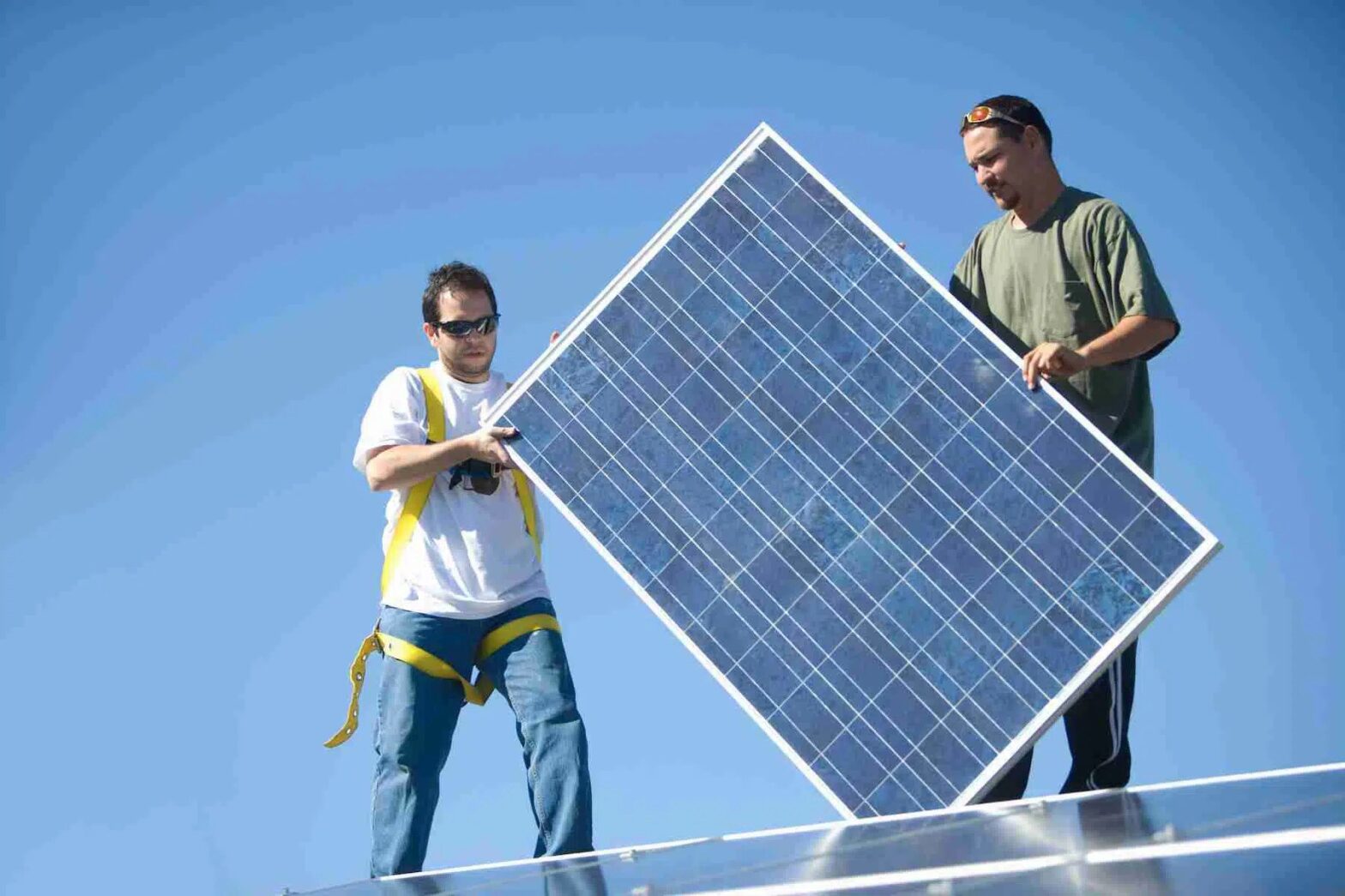
Should I install my solar panels myself?
Installing solar panels on your own can seem like a cost-effective and environmentally friendly option. However, it is important to weigh the pros and cons before making a decision. In this article, we will discuss the advantages and disadvantages of DIY solar panel installation.
Pros of DIY solar panel installation:
1. Cost savings: One of the main reasons people choose to install their own solar panels is to save money. By eliminating the cost of professional installation, you can significantly reduce the overall cost of your solar panel system.
2. Customization: When installing the solar panels yourself, you have the flexibility to customize the system according to your specific needs and preferences. You can choose the type and size of panels that best suit your energy requirements.
3. Learning experience: Installing solar panels on your own can be a great learning experience. It allows you to understand the technology behind solar energy and gives you the satisfaction of completing a DIY project.
Cons of DIY solar panel installation:
1. Safety concerns: Solar panels involve working with electrical components, which can be dangerous if you do not have proper training and knowledge. Inexperienced individuals may be at risk of electrical shocks or fire hazards, making professional installation a safer option.
2. Complexity: Installing solar panels is not a simple task and requires technical expertise. The process involves designing the system, wiring the panels, and connecting it to your electrical system. Any mistakes in the installation process can lead to reduced efficiency or even damage to the panels.
3. Warranty: Most solar panel manufacturers offer a warranty on their products, but it may become void if the panels are not installed by a certified professional. This means that if you encounter any issues with your panels, you may have to bear the repair costs yourself.
Is it worth installing DIY solar panels?
Whether or not DIY solar panel installation is worth it depends on your individual situation. If you have the necessary skills and knowledge, it can be a cost-effective option. However, if you are not confident in your abilities, it may be best to hire a professional to ensure a safe and efficient installation.
Moreover, it is crucial to consider the long-term benefits of professional installation. Experienced installers know how to optimize the placement of panels for maximum efficiency and have the necessary tools and equipment to complete the job efficiently. They can also provide maintenance services and ensure that your system operates at its peak performance.
while DIY solar panel installation may seem like a viable option, it is essential to assess the risks and benefits carefully. If you are confident in your abilities and prioritize cost savings, then it may be worth considering. However, if safety and long-term efficiency are your primary concerns, hiring a professional is the best option.
Pros and Cons of DIY Solar Panels
The idea of creating your own solar panels may seem like a cost-effective and environmentally-friendly solution for generating renewable energy. However, like any project, there are both pros and cons to consider before diving into a DIY solar panel installation. Let's take a look at the advantages and disadvantages of DIY solar panels.
Pros:
1. Cost SavingsOne of the biggest advantages of DIY solar panels is the potential cost savings. By building your own panels, you can bypass the labor and installation costs of hiring a professional. This can save you thousands of dollars in upfront costs.
2. CustomizationWhen you build your own solar panels, you have the freedom to customize them according to your specific energy needs. This can be especially beneficial for homeowners with unique or complex energy requirements.
3. Educational OpportunityBuilding your own solar panels can be a great learning experience. It allows you to gain a better understanding of how solar power works and gives you the opportunity to improve upon your system in the future.
4. Environmental ImpactDIY solar panels are a great way to reduce your carbon footprint and contribute to the fight against climate change. By using renewable energy, you are reducing your reliance on fossil fuels and promoting a cleaner and more sustainable environment.
Cons:
1. Technical Knowledge and Skills RequiredOne of the biggest challenges with DIY solar panels is the technical knowledge and skills required. Building and installing a solar panel system is a complex and time-consuming process that requires a certain level of expertise. If you do not have the necessary skills, it could result in a faulty or inefficient system.
2. Safety ConcernsSolar panel installation can be dangerous if proper safety measures are not taken. Working with electricity and climbing on a roof can put you at risk for electrocution or falling. It is important to follow safety protocols and use caution when installing DIY solar panels.
3. Time-ConsumingBuilding and installing your own solar panel system can be a time-consuming process. It requires meticulous planning, research, and a significant amount of labor. If you do not have the time to devote to this project, it may not be the best option for you.
4. Limited WarrantiesUnlike professionally installed solar panels, DIY panels often come with limited warranties. This means that you may not have the same level of protection and support in case of system malfunctions or defects.
Is it Worth Installing DIY Solar Panels?
The answer to this question ultimately depends on your individual circumstances. If you have the necessary technical skills and are willing to invest the time and effort, DIY solar panels can be a cost-effective and rewarding option. However, if you are not confident in your abilities or do not have the time to dedicate to this project, it may be better to hire a professional. Consider the pros and cons carefully before making a decision.
In conclusion,
DIY solar panels have both advantages and disadvantages. While they offer potential cost savings and customization options, they also require technical skills and pose safety concerns. Ultimately, it is important to weigh the pros and cons and carefully consider if DIY solar panels are the right choice for you.
1. How difficult is the installation process for DIY solar panels?
The difficulty of DIY solar panel installation largely depends on an individual's level of skill and experience with DIY projects. For those who are handy and have some basic knowledge of electrical systems, the installation process may be relatively straightforward. However, for those who are less experienced and have never worked with solar panels before, the process may be more challenging and time-consuming.
The first step in the installation process is to carefully plan and design the solar panel system. This involves determining the best location for the panels, calculating the energy needs of the household, and choosing the appropriate size and type of panels. This step can be quite technical and may require research and assistance from a professional.
Once the design is finalized, the next step is to gather all the necessary materials and tools. This may include solar panels, mounting equipment, wiring, and safety gear. It is important to ensure that all the materials are of good quality and compatible with each other to avoid any issues during installation.
The actual installation process involves mounting the panels on the roof or ground, connecting them with wiring, and installing inverters and other necessary components. This step requires basic electrical skills and careful attention to detail. It is crucial to follow all safety procedures and manufacturer's instructions to avoid any accidents or damage to the panels.
the installation process for DIY solar panels can be challenging, but it is not impossible. With proper research, planning, and the right tools, it can be a rewarding and cost-effective option for those who are willing to put in the time and effort. However, for those who are not confident in their DIY skills, it may be worth considering hiring a professional for a smoother and more efficient installation process.
2. What are the potential cost savings of installing DIY solar panels compared to hiring a professional?
Potential Cost Savings of DIY Solar Panels Compared to Hiring a Professional
Installing solar panels is a significant investment, and one of the main reasons people consider opting for DIY solar panels is to save money. However, it is essential to weigh the potential cost savings against the risks and challenges of installing them yourself. Let us explore the pros and cons of DIY solar panel installation and compare the cost implications.Pros of DIY Solar Panels: One of the main advantages of DIY solar panel installation is the potential cost savings. In general, hiring a professional to install solar panels can cost anywhere from $8,000 to $20,000, depending on the size and complexity of the system. By installing the panels yourself, you can save a significant amount of money on labor costs.
Moreover, DIY solar panel kits are readily available in the market, and they come with a comprehensive guide that makes the installation process more manageable. These kits typically include all the necessary tools and equipment, which means you do not have to spend extra money on purchasing them.
Cons of DIY Solar Panels: While the potential cost savings may seem appealing, there are also several drawbacks to consider. First and foremost, installing solar panels is a complex process that requires technical expertise and knowledge. If you do not have prior experience with solar panel installation, you may end up making mistakes that could lead to costly repairs and replacements in the future.
Additionally, installing solar panels yourself may also void the manufacturer's warranty. This means that if anything goes wrong with your panels, you will have to bear the cost of repairs or replacements yourself. On the other hand, if you hire a professional, they will offer a warranty for their work, providing you with peace of mind.
Conclusion: while DIY solar panel installation may seem like a cost-effective option, it is essential to consider the potential risks and challenges. While you may save money on labor costs, you may end up spending more in the long run if the installation is not done correctly. Moreover, a professional installation comes with a warranty, ensuring that any issues are taken care of without any additional expenses. It is ultimately a personal decision, and it is crucial to weigh the pros and cons before deciding whether or not to install DIY solar panels.
3. Are there any safety concerns to consider when installing DIY solar panels?
When it comes to installing DIY solar panels, safety must be a top priority. While it may be tempting to save money by doing the installation yourself, there are several safety concerns to consider before taking on the project. First and foremost, working with electricity can be dangerous, especially if you do not have any prior experience or knowledge. Improperly installed panels can lead to electric shocks or even fires, putting both yourself and your property at risk.
Additionally, the installation process itself can pose safety hazards. Climbing on the roof or using ladders to reach and install panels can result in falls or injuries. It is crucial to ensure that you have the necessary equipment and knowledge to safely work at heights. In addition, handling and lifting heavy panels can also lead to back strains and muscle injuries if not done correctly.
Furthermore, DIY solar panel installation involves working with complex wiring and electrical components. If not done correctly, these can cause electric shocks, fires, or even short circuits. It is essential to have a thorough understanding of electrical systems and take all necessary safety precautions when handling these components.
there are significant safety concerns to consider when installing DIY solar panels. It is crucial to have the necessary knowledge, equipment, and precautions in place before starting the project. If you are not confident in your abilities or do not have any prior experience, it may be best to hire a professional installer to ensure the safety of yourself and your property.
4. How long can I expect the DIY solar panels to last compared to professionally installed panels?
The longevity of DIY solar panels compared to professionally installed panels is a common concern for those considering installing solar panels. While there is no definite answer, there are some factors to consider when determining the lifespan of DIY solar panels.
Quality of Materials
The quality of materials used in DIY solar panels can vary greatly. Since these panels are often made from materials purchased at a lower cost, they may not have the same durability and efficiency as professionally installed panels. This can affect the lifespan of the panels.
Installation Process
The installation process is also a crucial factor in determining the longevity of DIY solar panels. If the panels are not installed properly, they may not be able to withstand harsh weather conditions, leading to a shorter lifespan.
Maintenance and Upkeep
DIY solar panels may also require more maintenance and upkeep compared to professionally installed panels. This is because the components may not be as high quality, and the installation process may not have been as precise. Failure to properly maintain the panels can significantly impact their lifespan.
Location and Climate
The location and climate of where the solar panels are installed can also affect their lifespan. If the panels are exposed to extreme temperatures or harsh weather conditions, they may deteriorate quicker. Additionally, the amount of sunlight and shading in the area can also impact the efficiency and lifespan of the panels.
Conclusion
In summary, the lifespan of DIY solar panels can vary depending on the factors mentioned above. While some may last as long as professionally installed panels, others may have a shorter lifespan due to the lower quality of materials and installation process. To ensure the longevity of DIY solar panels, it is crucial to use high-quality materials, follow proper installation procedures, and maintain them regularly.
5. Are there any potential drawbacks or limitations with DIY solar panels that I should be aware of?
While DIY solar panels may seem like a cost-effective and environmentally friendly way to produce renewable energy, there are also some potential drawbacks and limitations that should be taken into consideration before deciding to install them yourself.
One major limitation of DIY solar panels is the level of expertise and knowledge required to properly install and maintain them. Unlike professionally installed systems, which are typically backed by warranties and professional support, DIY solar panels rely solely on the skills and resources of the individual installing them. This can be a daunting task for those without prior experience or training in solar panel installation.
Another potential drawback is the quality of the materials used in DIY solar panel kits. Some cheaper kits may use lower quality components, which can result in less efficient energy production and a shorter lifespan for the panels. Additionally, DIY kits may not come with the same level of protections and certifications as professionally installed systems, leaving homeowners at risk for potential hazards.
it's important to consider the potential for mistakes or errors during the installation process. One small mistake can significantly impact the performance of the solar panels, resulting in lower energy production and potential safety hazards. Without the guidance and expertise of professionals, these mistakes can be difficult and expensive to rectify.
while DIY solar panels may have their benefits, it's important to thoroughly research and understand the potential drawbacks and limitations before deciding to install them yourself.DIY solar panels have both advantages and disadvantages. It can be a cost-effective and rewarding project for those who are handy and have some experience with DIY projects. However, it also requires a significant amount of time, effort, and expertise to install them correctly.
One of the main benefits of DIY solar panels is the potential cost savings. By installing the panels yourself, you can avoid the labor costs of hiring a professional installer. This can significantly reduce the overall cost of your solar panel system.
Additionally, DIY solar panels can be a great way to learn about solar energy and how it works. It allows you to have a deeper understanding of your own energy consumption and how to make your home more energy-efficient.
On the other hand, there are also drawbacks to installing DIY solar panels. One of the biggest concerns is safety. Solar panel installation involves working with electrical components, which can be dangerous if not done correctly. It is essential to have a thorough understanding of electrical wiring and safety precautions before attempting a DIY solar panel installation.
Furthermore, DIY solar panels may not be suitable for all homes. The location, orientation, and shading of your roof can significantly affect the efficiency of your solar panel system. Professional installers have the expertise to determine the best placement for maximum energy production. DIY installation may not achieve the same level of efficiency and could result in lower energy savings.
the decision to install DIY solar panels ultimately depends on your level of expertise, time, and budget. It is crucial to weigh the pros and cons carefully and consider all factors before embarking on a DIY solar panel project. If you do decide to go the DIY route, make sure to do thorough research and follow all safety precautions to ensure a successful and safe installation.




